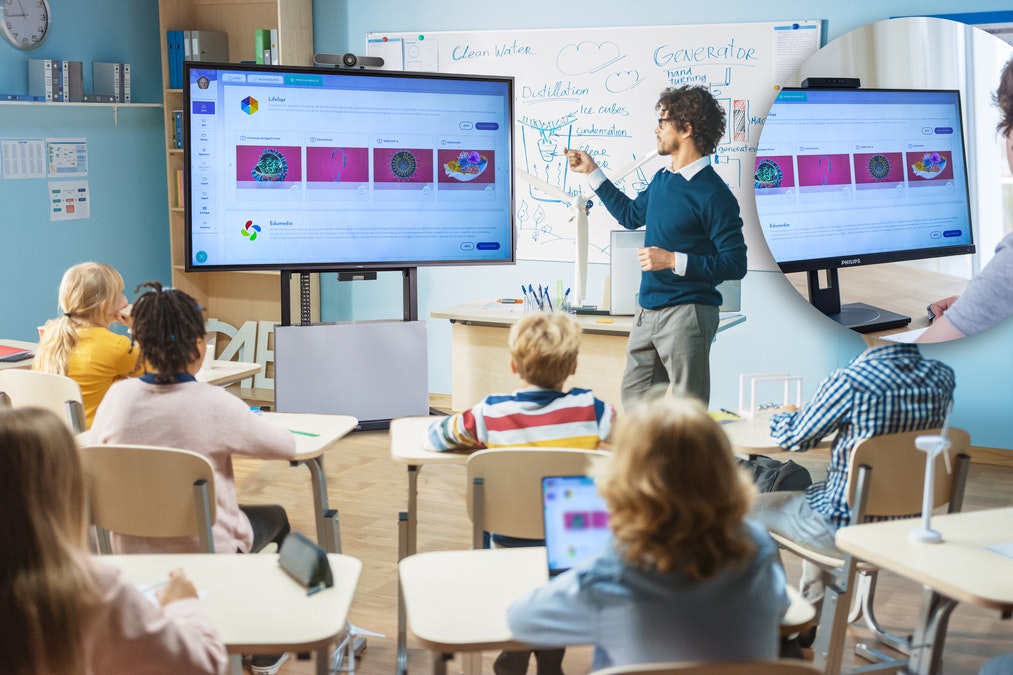Effective Primary Science Tuition Singapore for Better Exam Results
Effective Primary Science Tuition Singapore for Better Exam Results
Blog Article
Discover the Necessary Benefits of Comprehending Primary Scientific Research for Young Learners
The value of primary science education for young learners expands much past plain knowledge acquisition; it acts as a fundamental column in establishing necessary skills such as crucial reasoning, analytical, and imagination. Involving with scientific ideas through inquiry-based and interactive tasks not only cultivates inquisitiveness however additionally lays the groundwork for resilient, certain learners. As we check out these benefits further, it ends up being clear that the implications for future scholastic and personal development are profound. Nonetheless, what details strategies can teachers employ to take full advantage of these benefits?
Enhancing Important Thinking Abilities
Fostering important thinking abilities in young learners is vital for their cognitive development and future academic success. Essential thinking makes it possible for youngsters to analyze information, evaluate proof, and make informed decisions, which are important abilities in today's information-rich culture. By involving in clinical query, young learners can boost these abilities as they check out concepts via thinking, observation, and trial and error.
In key science education, educators can assist in crucial thinking by encouraging pupils to ask concerns, formulate hypotheses, and perform experiments. This hands-on strategy enables youngsters to practice analytic and establish rational thinking abilities. As an example, when pupils explore the buildings of products or the concepts of activity, they find out to assess their findings seriously and reason based on evidence.
Additionally, conversations and joint jobs can advertise vital reasoning by supplying opportunities for students to express their ideas, difficulty presumptions, and think about varied perspectives. By producing an encouraging setting that values inquiry and representation, instructors can nurture crucial assuming skills that encourage young learners to become long-lasting learners and independent thinkers. Eventually, improving these abilities lays a robust foundation for their future scholastic endeavors and individual development.
Fostering Inquisitiveness and Expedition

Primary scientific research education gives a structured environment where young learners can check out various phenomena through hands-on experiments and monitorings. By allowing them to connect with materials and take part in inquiry-based knowing, instructors produce possibilities for kids to create theories, test their ideas, and reason. Such experiences nurture a sense of wonder and excitement concerning scientific research.

Structure Self-confidence in Problem Solving
Structure self-confidence in analytical is a vital component of primary science education that equips young learners to approach challenges with durability and creativity - primary science tuition Singapore. When youngsters are urged to involve with clinical ideas with hands-on activities and inquiry-based understanding, they establish vital abilities in important reasoning and evaluation. This procedure not just improves their understanding of clinical principles yet additionally cultivates a sense of ownership over their learning
To develop self-confidence, teachers must create an encouraging environment where mistakes are deemed opportunities for development instead of failings. This encourages students to take risks and check out numerous solutions to issues. By offering scaffolding and advice, educators can assist trainees browse complex tasks, slowly enhancing their independence in analytical circumstances.
Furthermore, collective learning experiences, such as team projects or experiments, can further improve students' confidence as they learn to express their ideas and pay attention to others' perspectives. These interactions support social abilities and enhance the idea that analytical is commonly a collective endeavor. Inevitably, cultivating self-confidence in analytical prepares young learners for future academic challenges and furnishes them with the devices necessary for long-lasting knowing.
Encouraging Imagination and Technology
In the world of main science education and learning, urging imagination and advancement is essential for cultivating a dynamic knowing setting. By fostering a society where young learners can discover concepts and experiment easily, instructors help trainees establish essential assuming skills and an interest for discovery. Imagination in science encourages kids to ask questions, develop theories, and take part in hands-on tasks that stimulate their creative imagination.
Integrating open-ended jobs and inquiry-based knowing into the curriculum allows trainees to reveal their special viewpoints and services. When charged with resolving a trouble related to their setting, students can conceptualize numerous strategies, leading to creative outcomes that showcase their creativity. This not just strengthens their understanding of clinical concepts yet additionally infuses a read the article feeling of ownership over their learning explanation procedure.
In addition, creative scientific research education and learning nurtures cooperation among peers, as students typically share ideas and construct on each other's understandings - primary science tuition Singapore. This joint spirit advertises not just technology yet additionally necessary social abilities. Therefore, by focusing on creativity and innovation in primary scientific research education and learning, we encourage young students to think seriously, embrace obstacles, and visualize possibilities, laying a solid structure for long-lasting understanding and exploration
Planning For Future Discovering Obstacles
Young students' capability to browse future knowing challenges depends upon a strong foundation in main science education and learning. This foundational understanding gears up trainees with crucial thinking abilities and a methodical technique to problem-solving, necessary for taking on complicated concerns in an ever-evolving globe. Main science promotes inquiry-based learning, encouraging students to ask inquiries, explore hypotheses, and take part in hands-on experiments.
As they establish these skills, students come to be adept at analyzing data, recognizing patterns, and drawing notified final thoughts. Such expertises are vital not only in scientific fields but likewise in innovation, engineering, and mathematics (STEM), where interdisciplinary expertise is increasingly critical.
In addition, main science education and learning grows a feeling of inquisitiveness and resilience in young learners, allowing them to view challenges as opportunities for development. As they come across and conquer barriers in their clinical expeditions, they develop self-confidence in their ability to innovate and adjust.
Eventually, a solid foundation in key scientific research not only prepares young students for scholastic quests yet likewise furnishes them with the tools needed for long-lasting learning and versatility in a quickly changing worldwide landscape. By spending in primary science education and learning, find out here we are investing in the future possibility of our students.
Conclusion
Recognizing main science is vital for young learners, as it fosters crucial thinking, inquisitiveness, and creative thinking. Ultimately, the advantages of main scientific research education and learning prepare youngsters for future scholastic pursuits and impart long-lasting knowing practices crucial for prospering in an ever-evolving world.
The importance of main science education and learning for young students prolongs far past mere knowledge procurement; it serves as an essential pillar in establishing important abilities such as important reasoning, analytic, and imagination. By developing an encouraging setting that values questions and reflection, instructors can support essential assuming skills that encourage young students to come to be long-lasting learners and independent thinkers. Thus, by focusing on creativity and innovation in main science education, we equip young students to think seriously, accept challenges, and imagine opportunities, laying a solid structure for long-lasting knowing and exploration.
Young students' capability to navigate future learning difficulties pivots on a strong structure in main scientific research education.Understanding primary science is important for young learners, as it fosters crucial reasoning, curiosity, and creative thinking.
Report this page